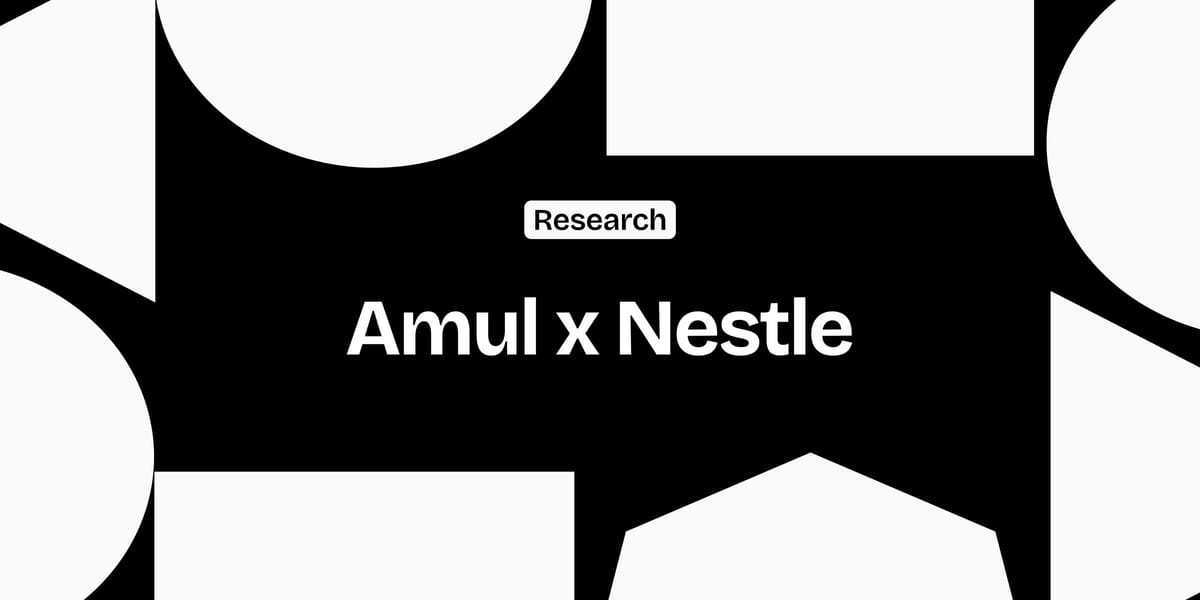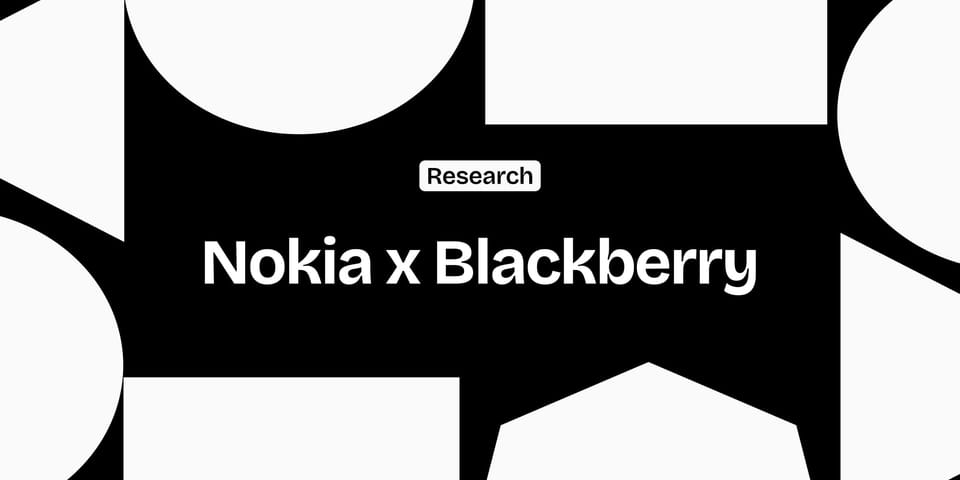Tale of 2 Brands
Nestle sells products. Amul sells Amul. That single difference in how they think about brand, distribution, and memory recall explains why one became a supermarket empire and the other a household name.

In a supermarket, I'm just moving fast. Picking based on trust, habit, maybe a flash of packaging I vaguely remember. And that's when something hit me: Maggi is Maggi, Amul Milk is Amul.
Both are massive. Both are everywhere. But I found it fascinating how differently they approach marketing and what values each model represents.
Nestle: Products First
Nestle is a product powerhouse. Maggi, Nescafe, KitKat, Milkmaid. Each of them is strong on its own, but rarely do you hear someone say "I'm a Nestle customer." The brand is invisible. The products do the talking.
Nestle optimizes for SKU-level performance. Every new product is expected to prove itself. The benefit is agility: you can scale what works, kill what doesn't, and insulate risk.
Take the Maggi controversy in 2015. For most companies, a nationwide ban on a flagship product would've been devastating. But Nestle survived it. Why? Because people blamed Maggi - not Nestle. That separation worked.
Strengths:
- Product-level focus
- Easy to experiment
- Less brand risk
Tradeoffs:
- Weak master brand recall
- No shared equity
- Loyalty lives with products, not the company
Amul: Brand First
Amul flips it. You don't buy cheese. You buy Amul cheese. You don't just want ice cream. You want Amul ice cream.
They've built a brand-first system where everything feeds the umbrella. It works across categories, because the master brand is trusted, familiar, and proudly Indian. Even when the product changes, the brand stays consistent.
This model thrives in high-frequency, low-involvement categories - milk, butter, curd - where recall beats feature comparisons.
Strengths:
- Strong umbrella trust
- Brand compounds with every new product
- Deep emotional resonance across regions
Tradeoffs:
- Harder to launch edgy or off-brand items
- One branding mistake can affect all products
- Everything depends on protecting the core identity
Two Models, Two Philosophies
Nestle bets on the strength of individual ideas.
Amul bets on the strength of collective memory.
Neither is right or wrong. They just represent different tradeoffs.
I respect Nestle's modular approach. But I admire how Amul creates meaning beyond the product. They will make you feel like you're buying into a relationship with the brand, not just a SKU off the shelf.
And when you're fighting for attention on a crowded shelf, that difference matters.
Not just butter. Amul.




